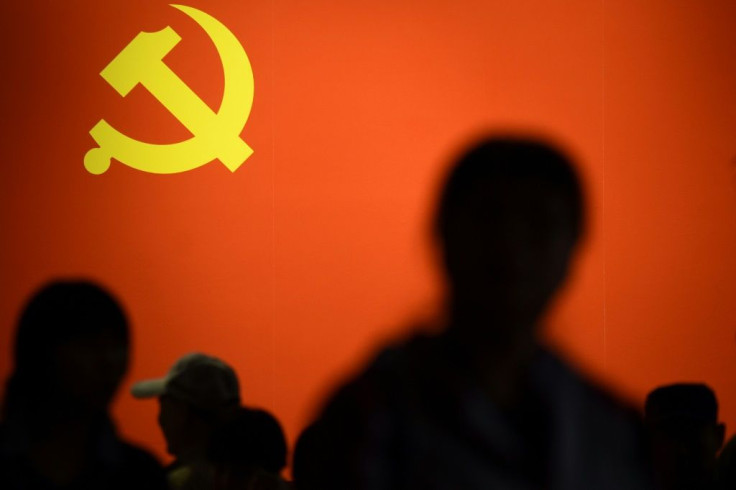China Journalist Jailed As Free-speech Clampdown Intensifies
A journalist who had worked for some of China's most powerful propaganda outlets has been jailed for 15 years after being accused of attacking the ruling Communist Party, court documents showed.
The sentence handed down on Chen Jieren is one of the harshest moves yet against free speech by China's government under President Xi Jinping, who has muzzled the press and ordered Chinese media outlets to serve the ruling Communist Party's interests.
It comes as China faces international scrutiny over its handling of the coronavirus pandemic, including questions over whether authorities covered up crucial information that could have prevented it spreading globally.
Chen, a former journalist with Communist mouthpiece People's Daily, was convicted Thursday of "picking quarrels and provoking trouble, extortion, illegal business operations and bribery," a court in central Hunan province said in a statement posted online.
The charge of "picking quarrels and provoking trouble" is a catch-all that Chinese authorities sometimes use against people who criticise the regime.
The court statement said Chen had posted "false" and "negative" information online "to hype relevant cases under the guise of providing legal advice."
It said Chen was part of an "evil force" along with his ex-wife and three other people that illegally accrued 7.3 million yuan ($1 million) from their activities.
The Chinese Human Rights Defenders watchdog said Chen was convicted "apparently to punish him for his political speech on WeChat and other social media platforms", calling for his immediate and unconditional release.
It said Chen had been sacked from state media outlets including the China Youth Daily, Beijing Daily, and People's Daily.
Since then he had published online commentaries and investigative reports on social media.

The group accused Chinese authorities of denying Chen a fair trial.
Silencing critics
China has faced criticism after authorities in the coronavirus origin city of Wuhan reprimanded whistle-blowers who sought to raise an early alarm about the virus, prompting accusations that the cover-up may have fuelled the pandemic.
Authorities also clamped down on Chinese citizen-journalists reporting on the pandemic's effects.
China in February expelled 13 US journalists with the New York Times, Washington Post and Wall Street Journal who were among foreign outlets reporting extensively on the coronavirus in China.
Beijing said the move was in retaliation for new restrictions on the number of Chinese nationals who can work for its state-run propaganda outlets on US soil.
But the expulsions have prompted alarm, with media organisations and the three newspapers warning that the action imperils "access to critical information" about the pandemic.
Chinese freedom of expression has always been tightly controlled by the Communist Party but that grip has become suffocating under Xi.
A Chinese court last year sentenced "cyber-dissident" Huang Qi, whose website reported on sensitive topics including human rights, to 12 years in prison for "leaking state secrets."
Space for independent discussion has shrunk further this year as Xi's government has sought to deflect blame for the virus, which scientists believe emerged from a wild animal market in Wuhan.
Ren Zhiqiang, an outspoken Chinese Communist Party critic and millionaire property tycoon, was detained after he penned an essay fiercely critical of Xi's response to the outbreak.
Three Beijing-based internet activists also have disappeared and are believed to be held by police for archiving censored coronavirus news stories online, a relative of one of the activists said this week.
© Copyright AFP 2024. All rights reserved.





















